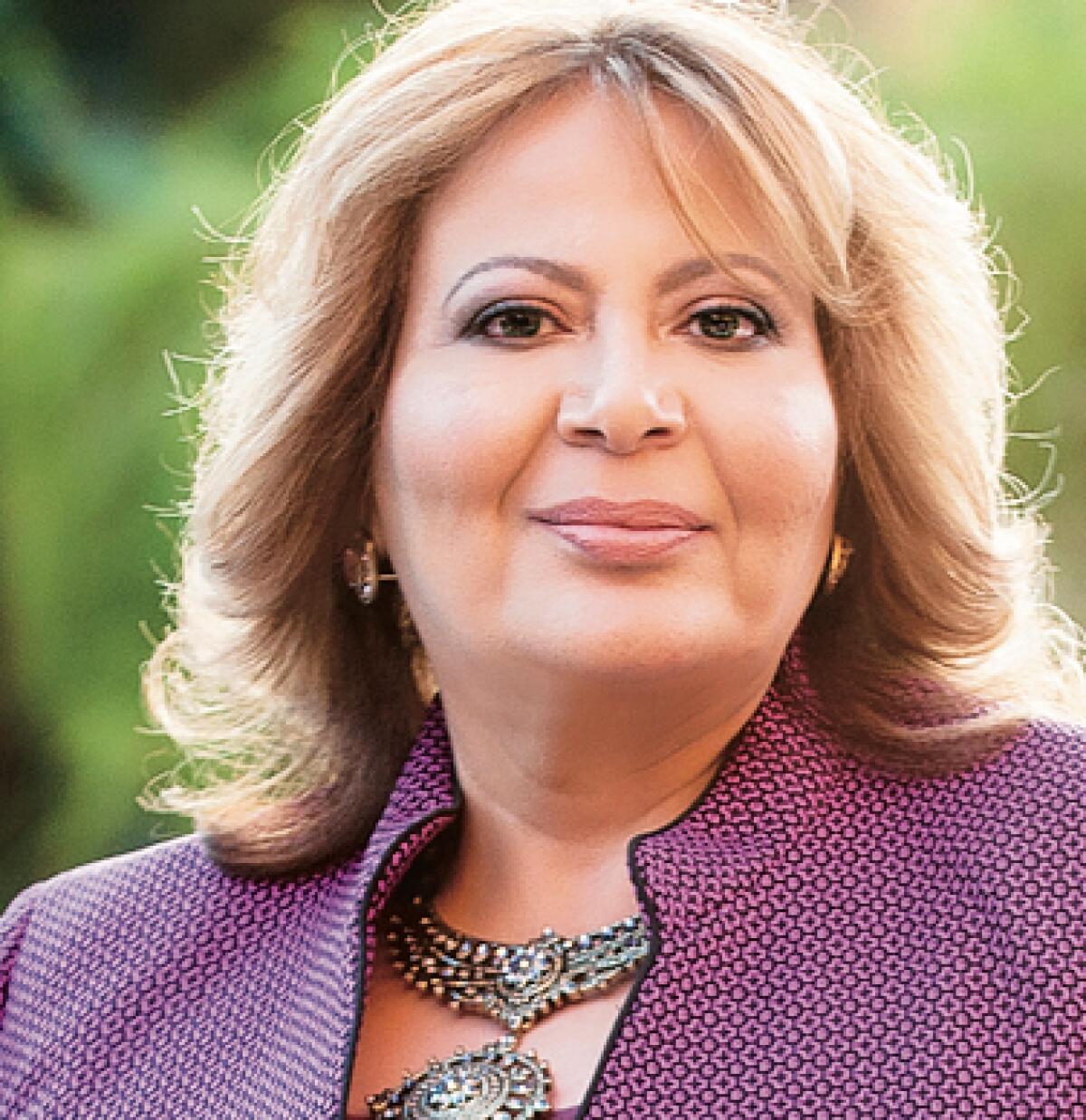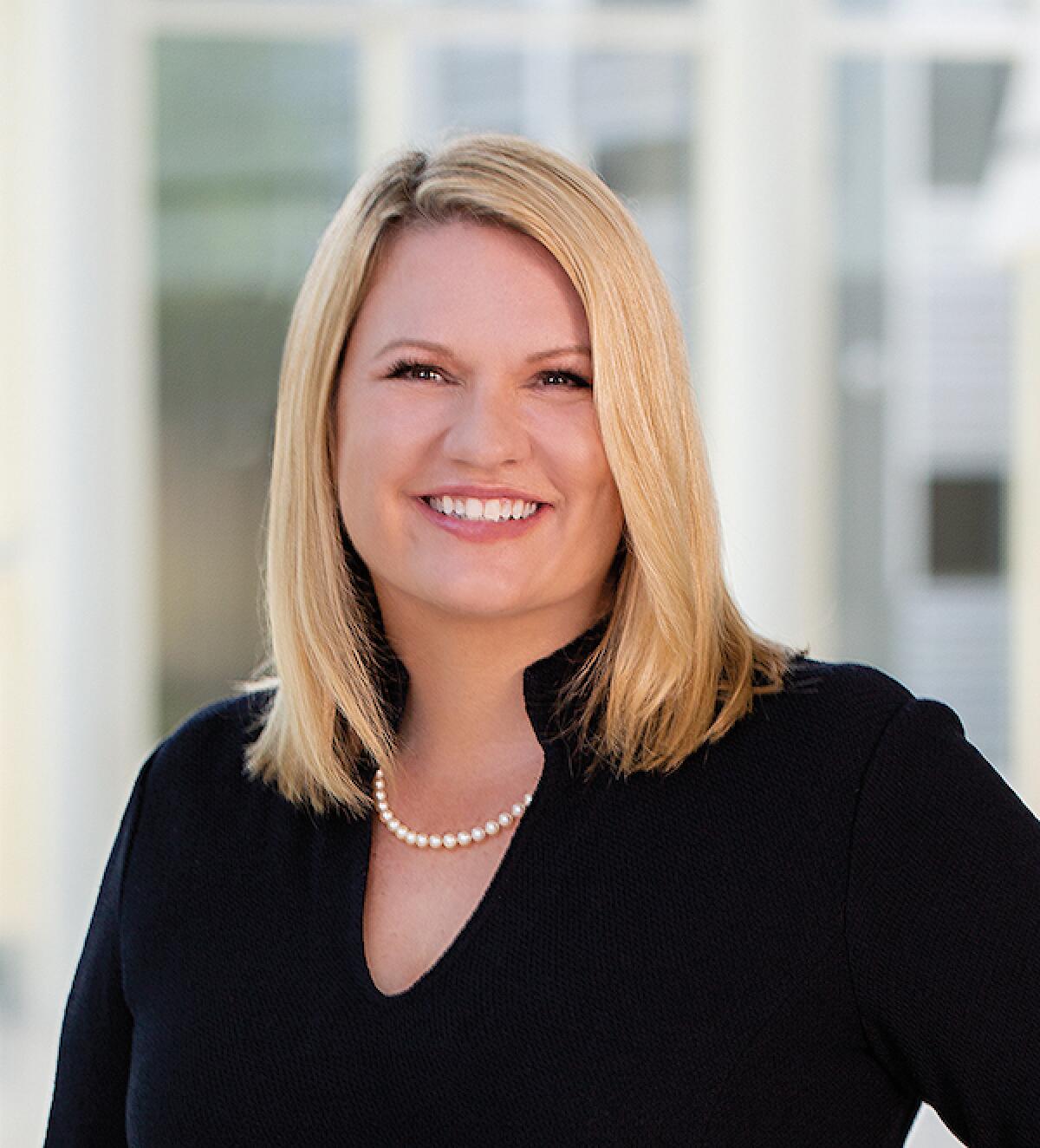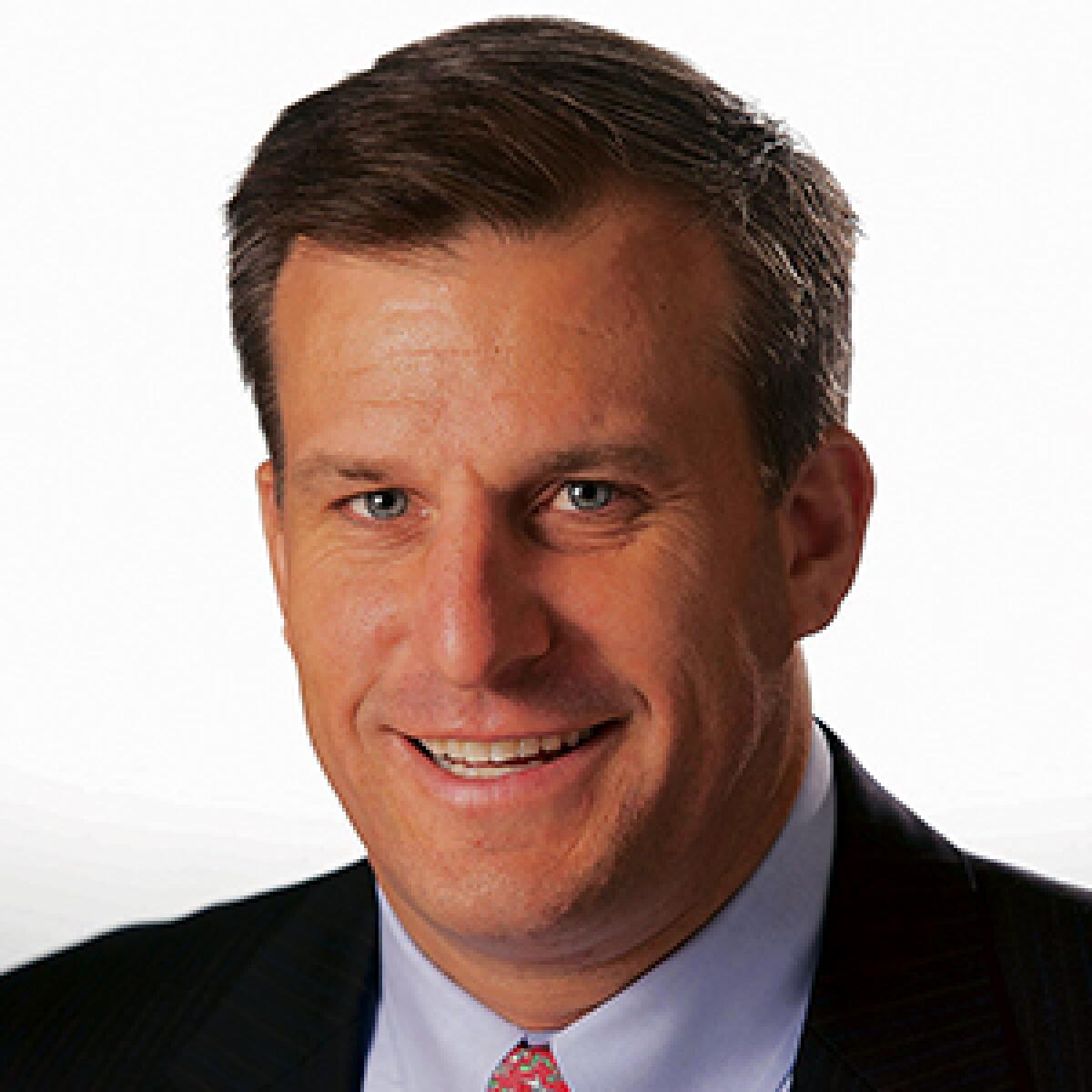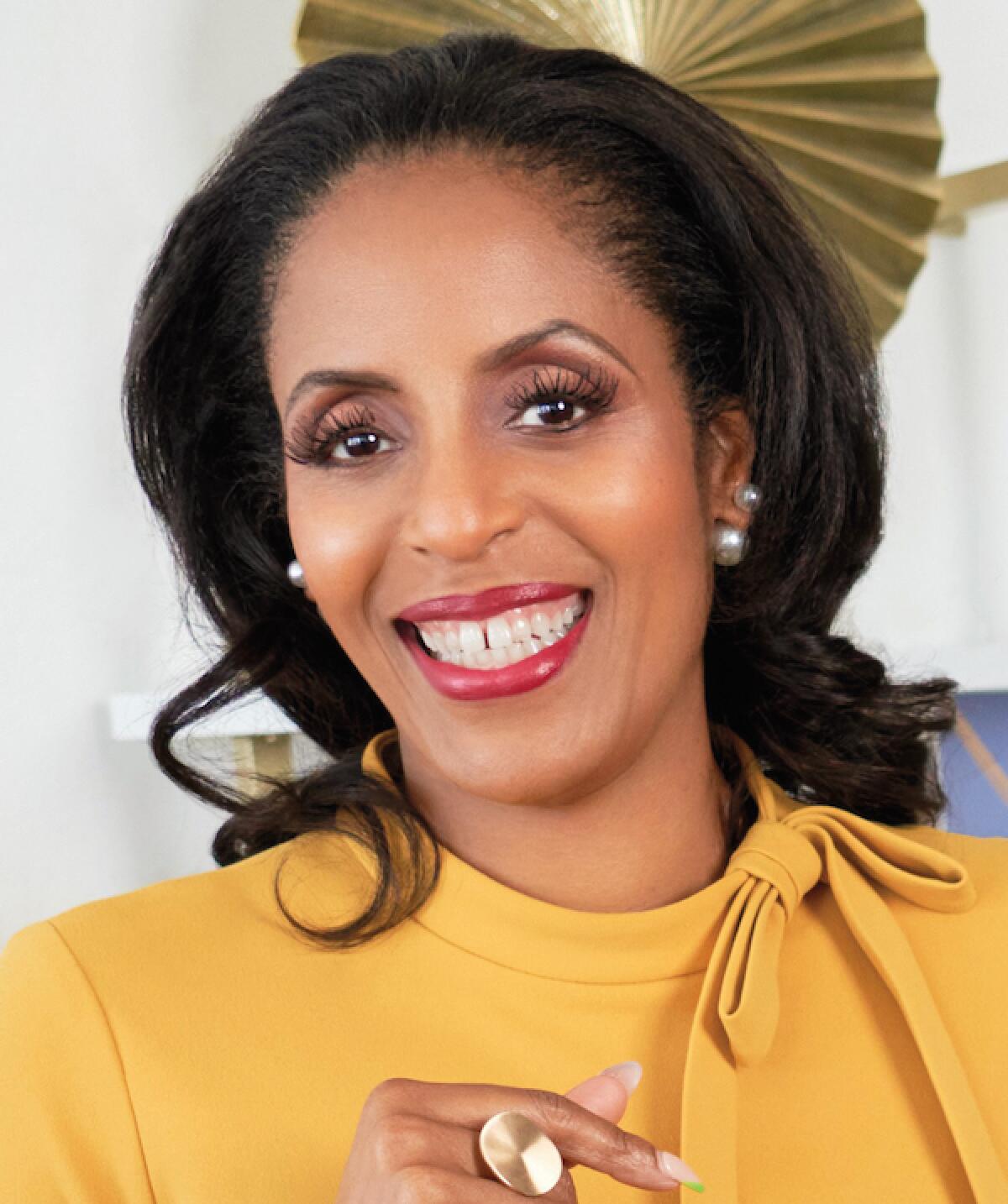Inclusive Leadership & Belonging Panel Discussion
As part of this year’s inaugural Diversity, Equity, Inclusion & Accessibility Leadership Forum, the L.A. Times B2B Publishing team hosted a panel discussion exploring trends, updates and issues affecting inclusivity and belonging from a leadership perspective.
The panel was moderated by Sahar Andrade of Sahar Consulting LLC and featured commentary from Andrew Forchelli of HUB International; Dr. Erika D. Beck of California State University, Northridge; and Dr. Thela Thatch of Paychex.

Sahar Andrade
Diversity, Equity and Inclusion Consultant
SAHAR CONSULTING LLC
Sahar Andrade, MB.BCh, is a diversity, global leadership, personal transformation speaker/ consultant. She has lived and been educated in seven countries and speaks five languages. She holds a double bachelor’s degree in medicine and surgery,a major in psychiatry from Cairo University and successfully completed an HR studies certificate program. Her Entrepreneur program has received Congressional recognition. She is a USC adjunct professor for the Multi-Cultural Executive Women Leadership Program and an instructor for UC Irvine teaching DEI & Unconscious Bias.

Dr. Erika D. Beck
President
CALIFORNIA STATE UNIVERSITY, NORTHRIDGE
Dr. Erika D. Beck began her tenure as president of California State University, Northridge in January 2021. A strong advocate for the power of higher education to improve lives, transform the community and promote social mobility, Dr. Beck works to ensure the academic success of students, so that they can become leaders in their communities and excel in today’s rapidly changing economy and society. This focus includes an unwavering commitment to advancing equity, inclusion and justice in service ofa brighter and more equitable future.

Andrew Forchelli
President
HUB INTERNATIONAL, LOS ANGELES AND ORANGE COUNTY
As the regional executive for HUB’s Los Angeles and Orange County operations, Andrew Forchelli has overarching responsibility for sales, talent management, claims, marketing, client services, carrier relationships and strategic planning. He also serves as a member of HUB California’s Executive Leadership team and as executive champion for the region’s DEI committee. In 2014, Forchelli became the regional executive for the Los Angeles operation of HUB and president of HUB’s national entertainment practice.

Dr. Thelá Thatch
Head of Diversity and Inclusion
PAYCHEX
Dr. Thelá R. Thatch leads diversity, equity, and inclusion initiatives in corporations, boards, and communities. With more than two decades of experience in human resources, talent management, and organizational development, she’s passionate about building internal cultures and external communities where an authentic commitment to inclusion, equity, and diversity thrives. Dr. Thatch authored a children’s book, “The Dog Chef”, and written shorter pieces for several publications. Her latest book, “Inclusionomics,” is dedicated to the study of inclusion and scheduled for release in 2022.
SHARED INSIGHTS FROM THE EVENT
Dr. Beck: Inclusive leadership is really at the epicenter of what we need collectively to realize a brighter future for us all. Decades of research tell us that diverse teams are more innovative, creative, and ultimately, more successful than homogenous ones.
Forchelli: Personally, effectively embracing diversity, equity and inclusion in leadership is about always striving to be a positive agent of change, doing my part to make the world around me a better place. Professionally, it’s about ensuring the very best talent in the world, regardless of race, gender, sexual orientation, or disabilities, wakes up every day wanting to be part of the HUB organization. Retaining great talent is hard enough. Why would any leader, intentionally or unintentionally, push people out?
Dr. Thatch: Inclusive leadership is critical as we are experiencing turbulent times due to COVID, social unrest, the Shecession, and the Great Resignation. Retention, recruitment, and civic responsibility are the primary drivers motivating increased DEI efforts. According to a recent Paychex survey, more thana third of Gen-Z and Millennials are actively looking fora new job. During these times,a focus on inclusive leadership is one of the key differentiators in how organizations will weather this storm.
Andrade: Belonging is the glue that holds diversity and inclusion and the missing part where everyone feels accepted for who they are, not who someone wants them to be – where they do not need to hide a part of the whole of who they are. It focuses on the beauty and strength of intersectionality. It is focusing on the people that are the number one asset for any organization.
Dr. Beck: The profile of college students today is vastly different than it was when most colleges and universities were founded – asa result of both a shift in the demographic landscape across the country and also a shift in the intentional effort to expand access to higher education to many more students in service of the public good that an educated populace affords a society. Once largely monochromatic in nature, today’s higher education servesa really rich tapestry of diversity of race, identity, socio-economic background, educational and life experiences, which all allows us to harness the cultural wealth and aspirational capital of our students – but only if we are able to reimagine the ways in which we advance our teaching and learning missions to truly serve the students on our campuses today and the communities that we seek to serve for generations to come.
Forchelli: For me, being an ally is largely about being an “unlikely ally.” An “unlikely ally” focuses on the needs of others, leveraging their status and privilege to be champions for those that are in need of an “ally.” To me, it’s the ultimate way to model allyship. There is not a person in the world who can’t be an unlikely ally to someone else. I love being considered an unlikely ally and wear that label likea badge of honor.
Dr. Thatch: I would like to see organizations practice intentionality around inclusion and belonging. Too often, employees have felt invisible and undervalued. I hope to see a continued commitment to awareness and education that supports learning about new experiences and cultures. I want to see executive leaders seek out and value individual perspectives throughout the employment life cycle – not just at hire, but from hire to retirement. Organizations have an opportunity to practice professional courage and cognizance in how they approach DEI initiatives.